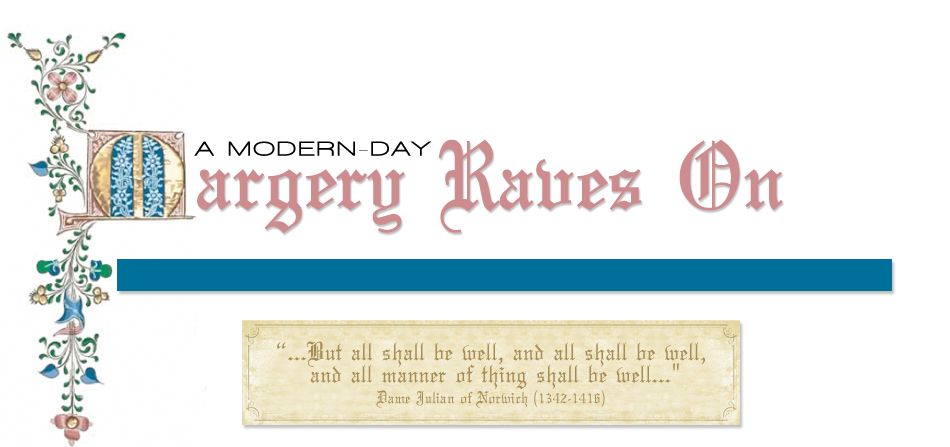“Children of the same family, the same blood, with the same first associations and habits, have some means of enjoyment in their power, which no subsequent connections can supply; and it must be by a long and unnatural estrangement, by a divorce which no subsequent connection can justify, if such precious remains of the earliest attachments are ever entirely outlived.”
Jane Austen
Recently, my husband and I were exposed to a situation in which there is estrangement between members of extended family.
Awkward doesn’t even come close.
Tragic is more accurate.
estrangement
1. to turn away in feeling or affection; make unfriendly or hostile; alienate the affections of: Their quarrel estranged the two friends. 2. to remove to or keep at a distance:
from Old French estranger, from Late Latin extrāneāre to treat as a stranger, from Latin extrāneus foreign; see strange
…see strange, indeed.
Real strange.
Speaking of, my memory vault is a strange, chaotic place. Like my messy closet, there seems to be little rhyme or reason to what’s stored there. I’ve forgotten major events that everyone else remembers in detail, while retaining bizarre little snippets of extraneous information.
For instance, one obscure phrase has stayed with me for over 30 years.
I was teaching a high school English class. It was back in the day when we used mimeograph machines and thick English textbooks instead of free-lancing it with individual novels. Our textbook included a Nordic lay, an early medieval heroic epic poem similar to the Anglo-Saxon Beowulf. I don’t remember what it was, or much about it. This is all I remember: one band of Vikings was welcomed, hosted, and entertained at another king’s hall on their way to fight some major battle or slay some foe. An alliance was made. Friendship. Kinship. Toasts and celebration. Eternal fraternity and camaraderie were pledged.
But on their way back through the land, something had changed. Revisiting their friends on the way home, the band received a very different reception. Their hosts were completely alien. Remote and removed. Sinister subterranean nuances replaced the warmth of convivial relationship.
“…And they were strangely cold…”
I don’t know why that line reverberated. Why it almost gave me chills. Perhaps it was because of the starkness of the unadorned words.
Maybe it was because I was going through some sort of rejection at the time.
There has always been something exquisitely disconcerting to me when a relationship inexplicably changes. When you think you really know someone, but you discover that you don’t know them at all. When things turn out to be completely different from how they seem, and you are left stunned at your naivety.
Or when a rigid wall erects itself, and intimacy is replaced by isolation and rejection.
Warmth by frigidity.
Love by aloofness.
Especially within families.
Estrangement is strange.
Unnatural.
Abnormal.
Perverse.
Because we were created for relationship… for union… communion.
For joining, not severing.
For harmony, not discord.
We are here for relationship.
We are here to learn to love. For some of us, it takes practice.
Our nuclear family has always been fairly overtly affectionate with each other. In a house of three daughters, we had plenty of cat-fights. My husband and I have had our share of marital spats. But there’s always been a lot of kissing and making up. A lot of “I love you’s.”
Since we almost lost our Katherine, it’s gone to a different level.
We say “I love you” at every parting. Every ‘bye” on the phone. We text it before taking off on a plane, the last thing before the flight attendant makes us turn off the gadgets.
Because you never know what might happen next.
Sometime after Katherine’s AVM rupture, a grieving mother shared her story with me. She was praying for us, although she was bearing an even greater sorrow. She lost her only daughter in a tragic car wreck. The daughter was going through a period of rebellion at the time. The parents were exercising tough love.
There was no time to say goodbye. One last, “I love you, no matter what.”
We don’t have time for estrangement.
Because time is not ours.
The apostle Paul advised, “If it is possible, as far as it depends on you, live at peace with everyone.” (Romans 12:18)
It’s not always possible. And it doesn’t always depend on us. Things such as addiction, abuse, or mental illness might make certain relationships difficult, if not impossible.
I can’t control anyone else’s behavior. But I can work on my own.
I’m a very imperfect person with many, many flaws and weaknesses. Sometimes I have a feisty little temper that can strike back at the jugular of anyone who messes with me. A sharp tongue that uses sarcastic barbed humor for retaliation. I “miss the mark” daily, if not hourly. But I take those words of Paul’s more seriously than I ever have before. I desperately want to live at peace with everyone. Every other poor sinner who’s trying their best with the cards they’ve been dealt. Every other lovely, flawed child of God.
Especially those whom God has entrusted to me as the gift of family.
I don’t ever want a slammed door to be the last sound I hear from someone I love.
Or a harsh word to be my final word to them.
Or, perhaps even worse,
for a strange icy-cold silence to scream between us from now until the grave.













